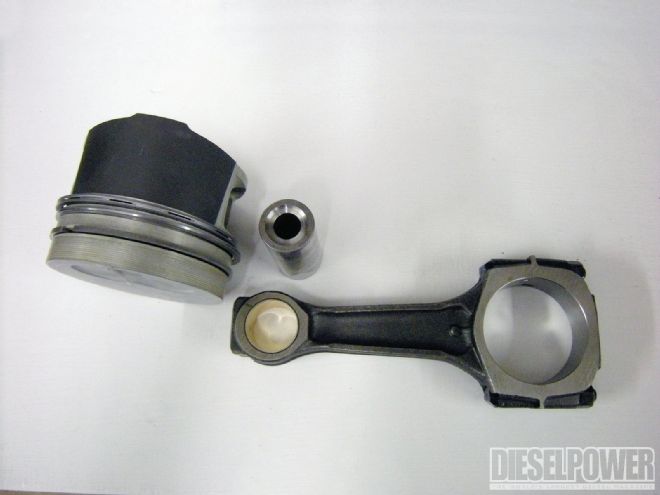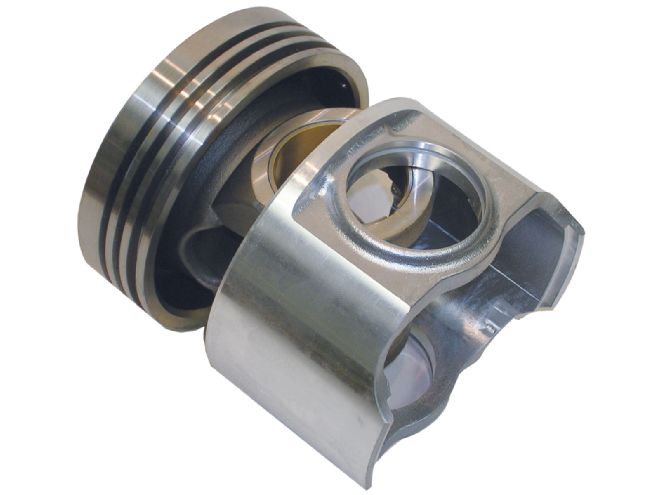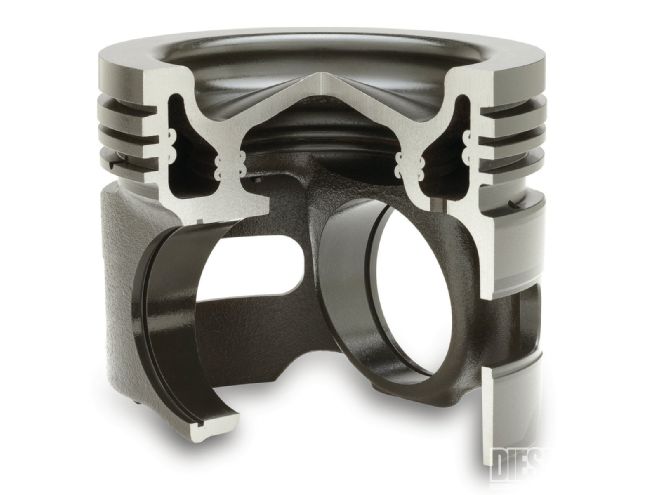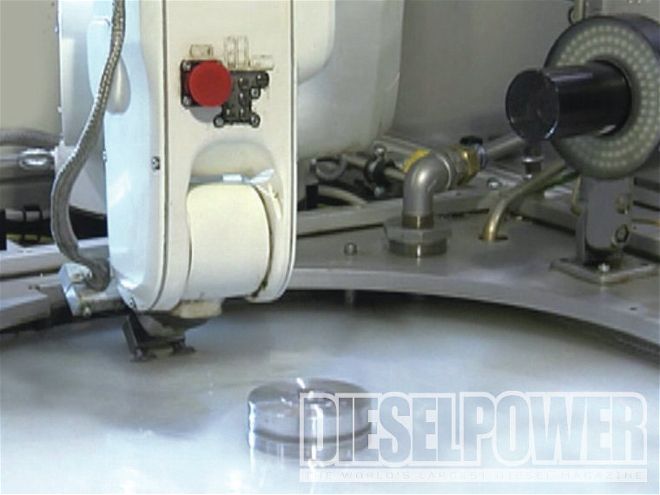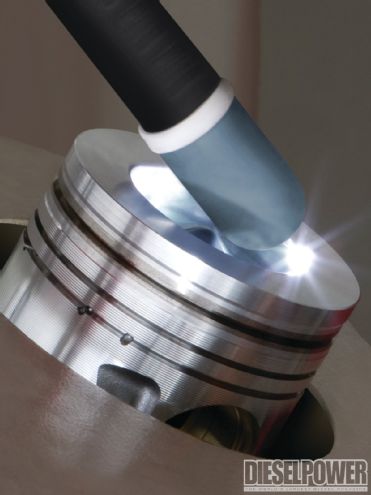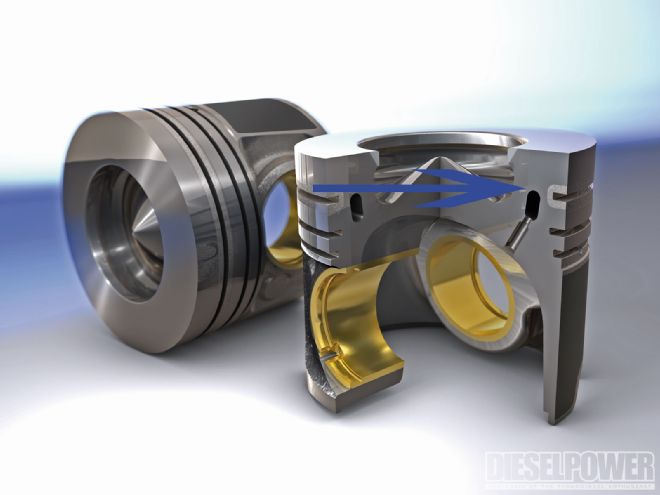Aluminum Vs. Steel Diesel Engine Pistons
Just as we debate which truck manufacturer is the best—engineers debate which material is the best. When it comes to diesel pistons, right now it’s hard to tell which material (aluminum or steel) will win the light-duty diesel segment. Steel has already won the heavy-duty diesel engine fight, but aluminum might be able to hold on a littler longer.

| A. Aluminum
B. Steel
C. Two-Piece articulated piston with steel crown and aluminum skirt
Aluminum pistons can be found in most of the engines on our roads today. Designers use aluminum pistons because they’re light, they manage the heat of combustion well, and they can be easily mass produced. The production method of choice for pistons in our diesel trucks has traditionally been to use cast-aluminum. Cast- aluminum pistons can also be found in most of the gasoline engines on the road today, although high-powered gasoline engines are often fitted with forged-aluminum pistons.
Using forged-aluminum makes the pistons stronger, but if that’s the case, why don’t diesel engines use forged-aluminum pistons? As it turns out, some diesels used in motorsport applications do use forged-aluminum pistons. The reason you rarely hear of people using forged-aluminum diesel pistons on the street is because of two things: It’s nearly impossible to fit a forged-aluminum piston with an oil galley (for piston cooling), and you can’t forge a steel upper ring land (for durability) into an aluminum piston—but you can cast them in.
Steel pistons have become attractive for high-stress and motorsport diesel applications because the material is physically so much stronger than aluminum. Because the whole piston is steel, ring-land wear is no concern. And steel pistons can be fit with enormous oil galleys to provide tremendous piston cooling. On top of all that, steel pistons tend to expand and contract at a rate that’s very close to the cast-iron block they run in—so ring seal and emissions characteristics are also improved.
So what’s the downside to steel? Steel pistons are heavy (hurting fuel economy), more difficult to machine (because the material is harder), and the infrastructure to make millions of steel pistons isn’t out there (like it is for aluminum). It’s for these reasons that many diesel engine builders will hold onto aluminum pistons as long as possible.
As enthusiasts, it’s fun for us to bench race, but the truth is there’s a place for both materials in our diesel engines.
To learn more about the advantages of steel pistons in daily-driven diesels, check out: www.dieselpowermag.com/tech/1204dp_mahle_unbreakable_pistons_piston_of_the_future/.
